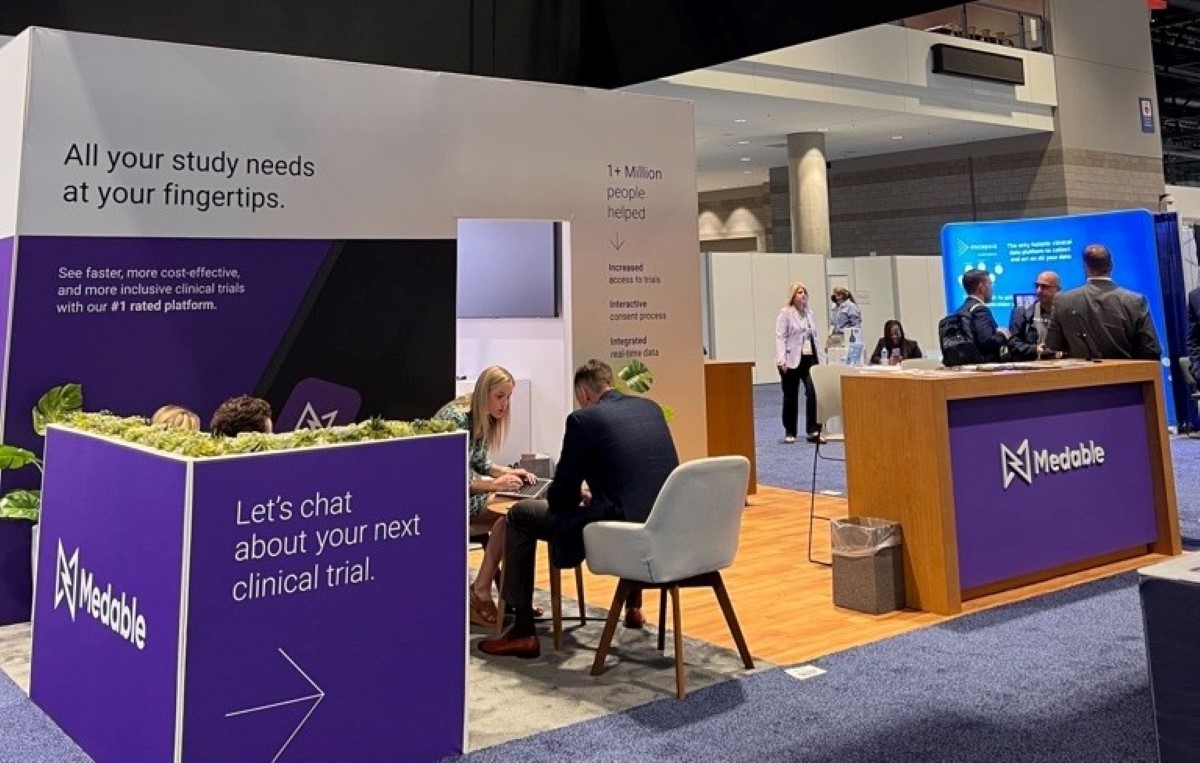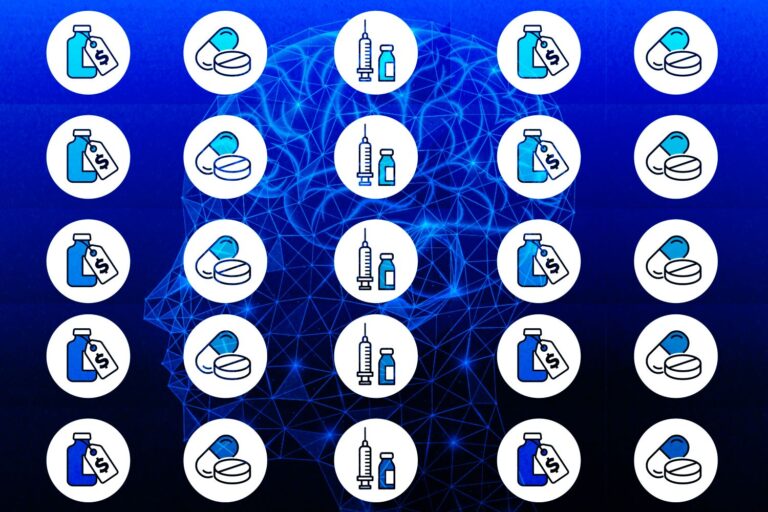How This Palo Alto-based Health Star Sparks the Adoption of Decentralized Trials
In 2013, CEO Michelle Longmire created Medable with the goal of addressing the issue of limited participant awareness and access to clinical trials in light of her own clinical research expertise.
Medable develops a healthcare platform. Through the implementation of direct-to-patient (D2P) healthcare, it improves clinical care and research by providing an end-to-end, cloud-based platform with a customizable suite of tools for clinical trials. The business offers remote patient monitoring, vaccine options, digital and direct Coombs test (DCT) screening, among other services.
The platform for Medable was created to address the systemic issues that current clinical trials face, such as access, system interoperability, and frustratingly ineffective technological experiences. These issues were inspired by the founders’ experiences as doctors, clinicians, and IT stewards.
“We know now that when patients are able to access a clinical trial online, using telemedicine and remote consent, most clinical trials will enroll three times faster. That’s an incredible data point that we didn’t know before COVID-19”, said Michelle Longmire, CEO and Co-Founder
In order to speed up drug discovery and enable therapies to reach patients more quickly, Medable has created a suite of unique technology products to assist with the delivery of digitally enabled and data driven clinical trials.
For the second year in a row, Medable was recognized by Everest Group as “Leader in Decentralized Clinical Trial Products Assessment” in November 2022.
The business has also achieved significant progress since the evaluation was conducted last year, including a $304 million investment round, growth into Europe, a significant pharmacy relationship with CVS Health, making CNBC’s inaugural list of Top 2022 Startups for the Enterprise, new product offerings for patient consent, and oncology and vaccination trials.
Every successful business has a backstory about how they tried to enter the “tough game.” Let’s explore Medable’s story to discover their way to unicorn status
Longmire and The Belief: See the Light within Chaos
Michelle Longmire, who admitted to CNBC last November that she was a hypochondriac as a child and “thought I had every disease under the sun,” learned to let go of that anxiety through her post-doctoral research at Stanford University’s medical school. She also came to the conclusion that the core research activity required a redesign as a result of her own clinical work on auto-immune skin diseases.
Clinical trial design problems go beyond a lack of diversity. Less than 4% of Americans take part in clinical trials; 30% drop out before the end of the study; and 80% fail to reach enrollment targets. But it wasn’t until Covid became popular that the rest of the world embraced Longmire’s perspective on the importance of technology in raising these figures.

“There was a lot of interest but not a lot of uptake, so when Covid hit, suddenly, the entire medical infrastructure on the research side needed a technology like Medable to be able to execute clinical trials … within a week I was getting calls from all over the world,” Longmire told CNBC.
When the Covid-19 outbreak hit, the industry quickly transitioned from being extremely slow to adopt decentralized clinical trials. As many patients were unable to visit the office for in-person appointments, while some were able to do so virtually, several current trials had to be placed on pause.
At that time, Medable’s technology enables studies to be carried out remotely, so participants do not need to physically attend a clinic each time they need to undergo tests. The Medable app may be used on a smartphone, which helps people who live far from clinics or have transportation and mobility problems to participate in clinical trials.
Over the course of the pandemic, Medable disseminated many clinical trials, including the Covid-19 vaccine and therapeutic therapy, to more than one million people across 41 countries and in more than 60 languages. By the end of 2022, Medable expects to boost its access to patients by 100 times, with a consumer strategy that it says “removes the barrier between research and everyday life.”
With an increase from utilization in about 5% of trials to 60-70% of trials, technology like Medable’s has now resolved its own under-representation issues. “Everything shifted,” according to Longmire.
The Decentralized Trial Approach Sparks Up the Speed in Every Race

Physician “visits” can be conducted remotely via telemedicine. Medical gadgets and mobile technology both enable remote data collection (and frequent data collection). Medable has developed a unified, modular digital platform that operates as a service to simplify clinical trials with direct-to-patient technologies during the past few years. The platform connects patients, sites and clinical trial teams to improve patient access, experience, and outcomes.
The platform is used by leading biopharma sponsors and clinical research organizations worldwide and has been used for trials in 30+ countries and 26 languages. The paradigm is quickly changing. Decentralized trials are now a need rather than a luxury.
Streamlining crucial vaccine trials, speeding up other medications, or starting new trials to treat the more than 7,000 rare diseases for which there are now no treatments on the market—reducing trial durations must be a long-term business imperative. Decentralized trials are necessary now to speed up the delivery of beneficial treatments to more patients.
Medable is on a mission to revolutionize clinical drug development with disruptive technology in order to deliver effective medications to patients more quickly. With integrated digital tools, data, and interfaces in place of siloed systems, the company’s digital platform accelerates trial design, recruiting, retention, and data quality for decentralized trials, speeding up trial execution.
Technology makes scientific research accessible, eliminating common barriers such as geography, economic status, and research awareness. Moreover, decentralized trial solutions help the industry create efficiency in clinical development, expand research to all people, and bring more treatments to market faster.
When we talk about their platform, we need to consider some of the exceptional advantages and contributions that their product has made to the sector.
Key #1: Net financial benefit
The typical DCT deployment for a clinical trial delivers a net benefit that is up to five times more than the initial investment necessary and saves one to three months of time. The net benefit from a similar time savings can be up to 14 times more than the initial investment.
Key #2: Shorter clinical trial times
The impact of cycle time reductions related to DCT deployments on net financial advantages was significantly greater than that of any other component. A delay of any kind will affect around 85% of clinical studies, costing somewhere between $600,000 and $8 million every day. Decentralized approaches that speed up trial completion can result in significant cost reductions.
Key #3: Lower screening failure rates
In the United States, less than 5% of the population engages in clinical research, and up to 50% of trials are abandoned due to insufficient recruitment. DCTs alter the paradigm to make it possible for patients to participate in their care more actively, with less time and stress from travel, quicker screening, more convenient consent and enrollment processes, and in certain situations, remote delivery of an intervention and outcome measurement.
Key #4: Fewer protocol amendments
Protocol amendments often cause delays and dramatically increase the costs of developing new therapies. The potential for fewer research sites in a DCT leads to fewer institutional review boards and a corresponding reduction in regulatory costs and increased flexibility around protocol changes.
How this Palo Alto Star Remove the Obstacles of Patients’ Clinical Participation

Medable is a leader among decentralized trial platforms, supporting over 150 decentralized and hybrid trials in 60 countries to date. Results show the decentralized approach’s effectiveness: when compared to conventional trials, Medable cuts expenses by 50% while double enrollment speed. Trial delays may cost developers tens of thousands, if not millions, of dollars every day, so this is crucial.
Medable provides businesses with a thorough perspective of patient health and outcomes in real-time thanks to its data integration and gathering capabilities, which are more sophisticated than those of a conventional clinical trial.
With its innovative technology, Medable is assisting in addressing a crucial problem in the process of developing therapeutic drugs. According to the American Medical Association, while 85% of people claim they want to engage in research, less than 5% of eligible patients actually do, and racial minorities are routinely underrepresented.
Traveling to a site is one of the primary obstacles to participation, therefore Medable makes it easier for pharmaceutical companies to attract and keep a wider range of participants. Studies run by Medable have a retention rate of 90%, which is much higher than that of conventional trials. In order to improve access to underprivileged communities, the company also disclosed a current partnership with CVS.
Achieving the $2.1B-Mark Milestone and the Journey Beyond
Medable raised $304 million in Series D fundraising in October 2021, its fourth round of funding since 2020, giving it a $2.1 billion valuation.
The funding round was co-led by new investors Blackstone Growth and Tiger Global and existing investor GSR Ventures. It also included additional funding from previous backers WTI and Sapphire Ventures.
“It’s great to see more mainstream investors interested in the space,” Dr. Michelle Longmire, CEO and co-founder of Medable, told TechCrunch. “It adds momentum to what we are going after.”
The company is in fact aiming for a share of the $11.5 billion global market for virtual clinical trials, which is expected to occur by 2028.
Medable is already on a fast-growth trajectory. Its growth of 300% over the previous year and more than 800% over the previous 18 months, according to Longmire, that is the evidence that a patient-centered approach is beginning to catch on. The company’s software has impacted the lives of tens of thousands of patients and is being used in 150 clinical trials that are being conducted at 5,000 clinical sites in 60 countries.
GSR Ventures started considering clinical trials in 2018, got to know Longmire in 2019, and invested in Medable for the first time in 2020. The technology was still in its immaturity, and people were still figuring out how to deal with the regulatory issues. Decentralization, according to the company, was most likely the direction that the business would take in the future, but mainstream acceptance wouldn’t happen for another three to five years. Then COVID appeared.
“COVID changed the game,” Kumar said. “We initially saw 10% to 12% of trials using any meaningful decentralization to now 60% to 70% having some element of decentralization. Medable has proven it is in a strong position to win outsized market share. It is a competitive market, but Medable is breaking away from the pack.”

It typically takes a good decade and millions of dollars for pharmaceutical companies to see a new drug come to market. According to Kumar, we are now noticing the benefit in the decreased cost of trials, but we have not yet fully realized the full potential of a medication trial that started the process in this way. Medable’s objectives are to decrease costs by half and enhance speed to market by two times.
The latest investment of $304M brings Medable’s total fundraising to $521 million, including a $78 million Series C extension in April, 2021 that came after a $91 million of initial Series C deal in November 2020.
According to Longmire, the additional funding will allow the business to expand its technology on a worldwide scale, enabling the execution of patient-centered studies and enabling patients to do more safely and in ways that are more effective for them. Additionally, it will make investments in product development, its partner ecosystem, and the success of customers and patients.
“We are looking to make game-changing progress in a fast way, and the faster we can build the infrastructure, the better,” she added. “We want to make aspects of trials more local, done in the local pharmacy or clinic. There are trials for cutting-edge oncology drugs, and we want everyone to have access to that drug no matter where they are or who they are.”
Bottom lines
During, Medable’s technology helps pharma giants such as AstraZeneca administer remote clinical trials and navigate the complications of pandemic shutdowns, saving time, money, and lives. Over a several years, Medable has shown its value to the society. Medable customers have achieved impressive results – including 200 percent faster enrollment and 50 percent cost reductions. As Clinical Trial has developed as an important trend, Medable is going to be much more than an “Super Unicorn” Startup.









